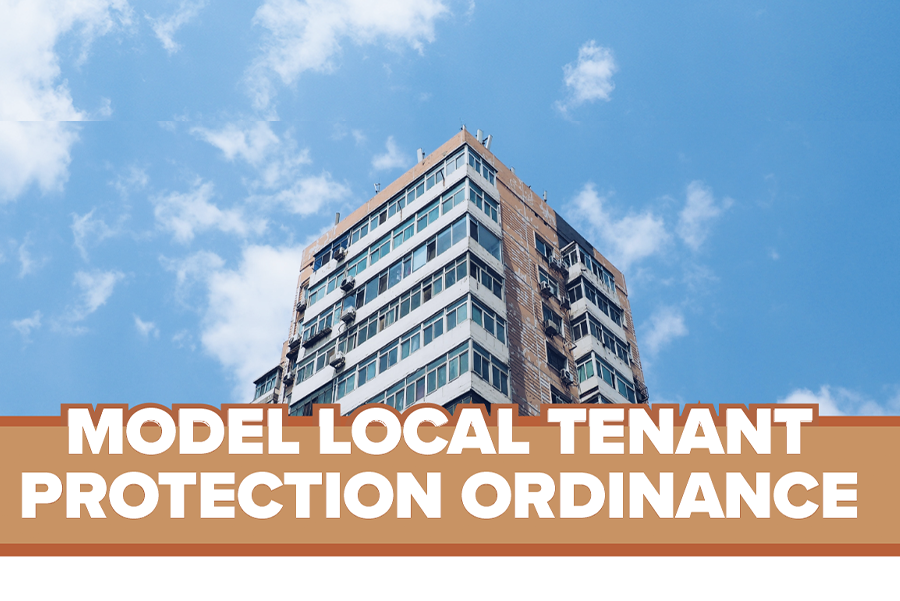
Resources About Housing
Featured Resources About Housing
Some states have begun to use preemption to force localities to criminalize camping in public, taking local resources away from proven solutions that could address the root causes of homelessness. Rather than solve the crisis, this preemption exacerbates it by punishing people who can find shelter nowhere else.
This model ordinance can serve as a guide for local elected officials in their attempts to enact tenant protections in their city or town.
This map focuses on four of these policies: protections against source-of-income discrimination, the regulation of short-term rentals, inclusionary housing programs, and rent regulation.
All Resources About Housing
Some states have begun to use preemption to force localities to criminalize camping in public, taking local resources away from proven solutions that could address the root causes of homelessness. Rather than solve the crisis, this preemption exacerbates it by punishing people who can find shelter nowhere else.
The volume of housing preemption that occurred in the years before the pandemic left many local governments unable to respond to the ongoing public health crisis and uneven economic recovery.
The second edition features a series of articles that explore how some states preempted local authority across a host of issues during the pandemic.
This model ordinance can serve as a guide for local elected officials in their attempts to enact tenant protections in their city or town.
Determining whether local governments have authority to implement local tenant protections, particularly in the face of potential state preemption, remains a challenge.
This map focuses on four of these policies: protections against source-of-income discrimination, the regulation of short-term rentals, inclusionary housing programs, and rent regulation.
A bill amended Indiana statutes on a number of housing-related issues, including preempting localities from adopting ordinances on foundation and size requirements for manufactured homes and preempting local ordinances regulating retaliatory acts by landlords.
We examine the use and merits of the patchwork argument across 10 policy areas and review the evidence around the patchwork argument’s merits.
14 authors were tasked with working as advocate-researcher co-authors to produce short articles highlighting recent research findings, emerging issues, and data and research needs across seven policy fields.
“Cities and counties across the U.S. are being forced to battle two catastrophes — COVID-19 and the eviction crisis — with their hands tied. In the face of inadequate federal and state responses, local governments are struggling to adopt policies that will keep their communities safe and people in their homes.”
This provides a listing of the lawsuits as of July 2020 that challenge pandemic-related tenant protections.
This model resolution is geared towards helping local officials and advocates push their legislature and governor to clarify local authority pertaining to housing solutions.
This model resolution is geared towards helping local officials and advocates push their legislature and governor to clarify local authority pertaining to key policies around housing, worker protection, and broadband access.
As the coronavirus pandemic spreads, local elected officials and advocates alike are asking what they can do for their communities across a range of policies—including those that respond to our pressing housing and homelessness needs.
In this brief, we synthesize the evidence on the effectiveness of local rent control laws and suggest areas in which further research could help policymakers, advocates, and the public improve state and local laws regarding rent control.
In this brief, we synthesize the evidence on the effectiveness of local inclusionary zoning laws and suggest areas in which further research could help policymakers, advocates, and the public improve state and local laws regarding inclusionary zoning.
















